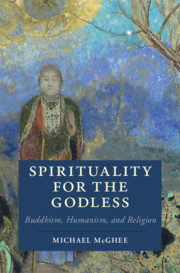6 results
10 - Heidegger and Blanchot
- from III - Heidegger and Literary Works
-
-
- Book:
- Heidegger and Literary Studies
- Published online:
- 09 November 2023
- Print publication:
- 23 November 2023, pp 253-277
-
- Chapter
- Export citation
6 - A Secular ‘State of Grace’?
-
- Book:
- J. M. Coetzee and the Limits of the Novel
- Published online:
- 08 June 2023
- Print publication:
- 22 June 2023, pp 139-159
-
- Chapter
- Export citation
Introduction
-
-
- Book:
- Sacred Modes of Being in a Postsecular World
- Published online:
- 07 September 2021
- Print publication:
- 16 September 2021, pp 1-12
-
- Chapter
- Export citation
9 - Lyric as Paradigm
-
-
- Book:
- The Cambridge Companion to Gadamer
- Published online:
- 29 July 2021
- Print publication:
- 12 August 2021, pp 213-241
-
- Chapter
- Export citation

Spirituality for the Godless
- Buddhism, Humanism, and Religion
-
- Published online:
- 18 June 2021
- Print publication:
- 08 July 2021
Chapter 6 - Religion in German Modernism 1900–1945
-
-
- Book:
- Literature and Religion in the German-Speaking World
- Published online:
- 14 September 2019
- Print publication:
- 26 September 2019, pp 204-243
-
- Chapter
- Export citation



